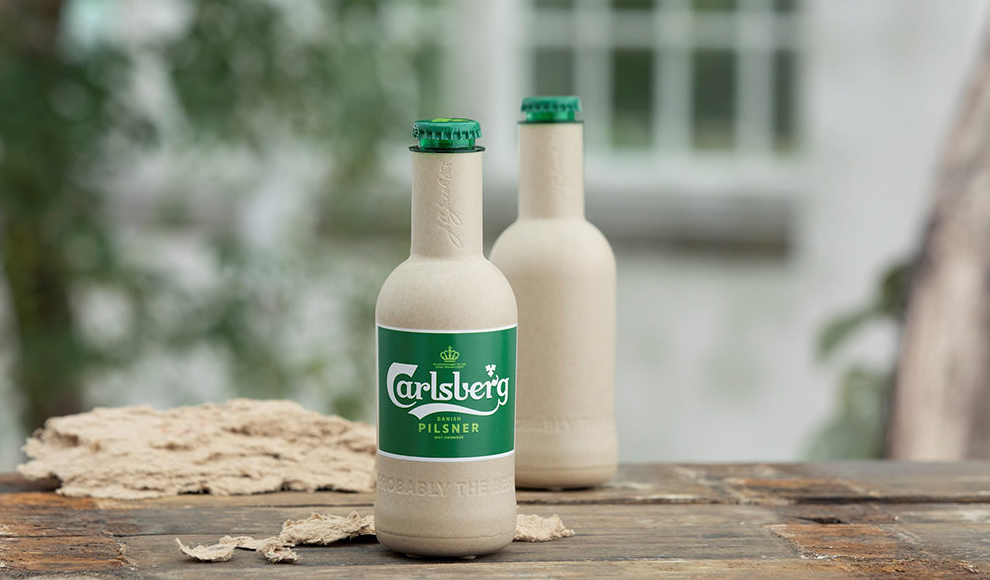Danish brewery Carlsberg has developed a sustainable beer bottle made from wood fibers and plant-based plastic PEF. The eco-friendly packaging keeps beer cooler for longer compared to cans or glass bottles. Carlsberg has been working on a more environmentally friendly beer bottle for around seven years as part of the Green Fibre Bottle project, in collaboration with innovation expert ecoXpac, packaging company BillerudKorsnäs, and the Technical University of Denmark. The first bio-based and recyclable beer bottle made from sustainable wood fibers has been tested in a pilot project, with 8,000 Green Fibre Bottles distributed at selected festivals in Denmark, Sweden, Norway, Finland, the UK, Poland, Germany, and France. Feedback from consumers will help with further development of the packaging.
The inner wall of the fiber bottle is lined with a polymer made from plant-based plastic PEF, developed by renewable chemistry company Avantium. PEF is produced entirely from natural raw materials and is compatible with existing plastic recycling systems. If PEF ends up in the environment, it can be naturally degraded. PEF also protects beer better than conventional PET plastic inner walls, which are produced from fossil fuels. The outer shell of the Green Fibre Bottle is made from sustainably sourced wood fibers produced by packaging company Paboco. It is therefore sustainable and bio-based. In addition, the outer shell has good insulating properties, keeping beer cooler for longer than cans or glass bottles.
The current generation 2.0 of the Green Fibre Bottle has a closure that is not yet bio-based, but Carlsberg, Paboco, and other partners are already developing an alternative fiber-based bottle closure that will be introduced with the generation 3.0 of the Green Fibre Bottle in 2023. The Green Fibre Bottle produces significantly fewer emissions than glass bottles, and the goal of the project is to develop a fiber bottle with a CO2 footprint as low as that of a refillable glass bottle. The Green Fibre Bottle is an essential part of Carlsberg’s sustainability program Together Towards ZERO, which aims for the company’s breweries to produce no CO2 by 2030 and reduce CO2 emissions along the value chain by 30%. Carlsberg is not only focusing on eco-friendly packaging but also on fully biologically and regeneratively grown barley, sourced from barley malt supplier Soufflet.










